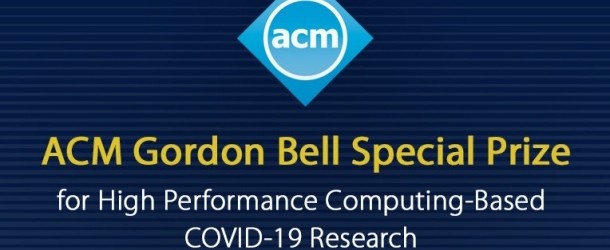2021 Gordon Bell Prize goes to Chinese researchers’ exascale-powered quantum supremacy challenge

(NextPlatform) The winners of the 2021 ACM Gordon Bell Prize are a team of Chinese researchers leveraging the new exascale Sunway system to simulate quantum circuits.
The Gordon Bell Prize, which comes with an award of $10,000 courtesy of HPC pioneer Gordon Bell, is awarded annually to an outstanding achievement in high-performance computing, with ACM intending to “track the progress over time of parallel computing, with particular emphasis on rewarding innovation in applying high-performance computing to applications in science, engineering, and large-scale data analytics.” Hundreds of volunteers evaluated the submissions for the ACM awards, and eventually, the selection committee settled on six finalists for the 2021 Gordon Bell Prize.
Over the course of the week, the six finalists for the Gordon Bell Prize presented their research, spanning quantum computing, molecular dynamics, spectroscopy and fusion energy. The researchers used a series of the most powerful supercomputers in the world, including the Anton 3 molecular dynamics specialist system, Summit (the most powerful publicly ranked system in the United States), Fugaku (the four-time reigning champion of the Top500) and the recently (partially) unveiled Sunway exascale system in China, which collected three of the six nominations.
The fourteen researchers (whose affiliations span Zhejiang Lab, Tsinghua University, the National Supercomputing Center in Wuxi and the Shanghai Research Center for Quantum Sciences) leveraged the massive new Sunway exascale system that was more or less revealed during SC21 to conduct groundbreaking simulation of a quantum circuit.
“With Google’s “Quantum Supremacy” declaration in 2019, stating that the Sycamore superconductive quantum computer is over a billion times faster than Summit (comparing 200 seconds against 10,000 years in the task of measuring/simulating one million samples), the dawn of the quantum age starts to unfold in a more affirmative way,” the researchers wrote. “A later response from the IBM research team argues that they can accomplish the simulation on the classical Summit supercomputer … within a few days instead of 10,000 years.”
The team used the sampling of quantum states of a random quantum circuit as an example problem for the closing of this hotly debated quantum advantage. The researchers’ random quantum circuit simulator, combined with the firepower of the Sunway exascale system, simulated a 10×10(qubits)×(1+40+1)(depth) circuit at a sustained performance of a staggering 1.2 exaflops of single-precision computing power, or 4.4 exaflops of mixed-precision, which the researchers say is “A new milestone for classical simulation of quantum circuits.” They reduced the simulation sampling time to 304 seconds from that previous estimate of 10,000 years.



















